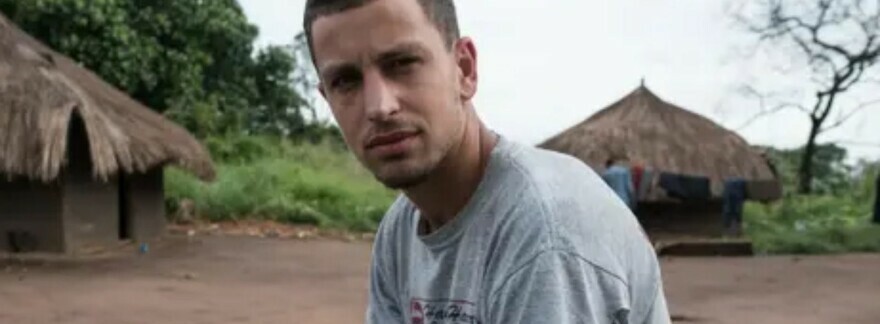South Sudan said Thursday that its probe into the death of journalist Christopher Allen supported earlier government statements that he was ” killed as a result of crossfire” while covering fighting.
The 26-year-old freelance journalist, a dual American-British national, was shot in the head during a battle between the South Sudanese army and SPLA-IO rebels in the town of Kaya in Central Equatoria State on August 26, 2017.
After years of international pressure calling for investigations into his killing, South Sudan’s government announced in October last year that it would launch an investigation into the incident.
The South Sudanese government has repeatedly denied targeting Allen, who had been embedded with rebel forces to cover the conflict.
David Charles Ali Bilal, head of the investigation committee, released the report in Juba, stating that they gathered information through interviews with witnesses in both Juba and Kaya to establish facts about Allen’s death. He said they also utilized pictorial and video evidence during the investigation.
Charles explained that Allen died in crossfire during a military confrontation between the South Sudan People’s Defense Forces (SSPDF) and the SPLA-IO when the former attacked the military base in Kaya.
“Christopher Allen was unintentionally killed as a result of crossfire,” he said, reading out the report.
“The attack occurred at 5:30 AM, when visibility was extremely limited. It was only after the attacking forces were repelled that soldiers conducted a damage assessment, discovering among the seven corpses a white man,” Charles added.
He stated that the slain journalist entered the country illegally and was not accredited by the National Media Authority. “When we reached out to the Ministry of Interior, specifically the Directorate of Immigration, they informed us that there was no record of anyone named Christopher Allen entering South Sudan in their documents. They contacted all border officers across the country, but there was no trace of such an individual. Similarly, our inquiry with the Media Authority regarding accredited journalists in South Sudan yielded a negative response,” Charles explained.
Dr. James Pitia Morgan, Minister of Foreign Affairs and International Cooperation, commended the committee’s efforts, suggesting that Western Ambassadors should have been present during the report’s release.
“To be frank, we’ve faced numerous questions and accusations without having clarity on what occurred in our own town of Kaya. It’s deeply saddening that such incidents are happening in our communities, leading to the death of an innocent individual who travelled from afar,” Pitia remarked.
“Even during my tenure as Ambassador in Addis Ababa, I faced similar questions. Our government has been unfairly blamed for this incident, and individuals in positions of authority have been unjustly targeted. However, the evidence compiled by this team is commendable, and I express my gratitude to them,” he concluded.
Pitia emphasized that the report empowers him to address inquiries from reporters and foreign missions regarding the journalist’s death. “With this evidence, I now have the authority to respond to any journalist or individual who may inquire. As the Minister of Foreign Affairs, I request a copy of this report for my office. Despite having clarity from this committee’s findings, some may still ask similar questions, and I want to be equipped to explain the details accurately,” he stated.
Meanwhile, Information Minister Michael Makuei who had previously described Allen as a “white rebel” said he had been in the country illegally.
“The report confirms what we have been stating all along. Christopher Allen’s status as an accredited journalist was questionable. He entered illegally and joined the rebellion,” said Makuei.
“We did not seek further investigation initially, as the previous report was satisfactory. However, international pressure compelled us to form this committee. We referred to him as a ‘white rebel’ because his presence among the rebels was unusual. Until he was brought to Juba, we were unaware of his identity as a journalist,” he concluded.
The U.S. Embassy in Juba could not immediately be reached for comment.
South Sudan ranks 118th out of 180 countries on RSF’s 2023 World Press Freedom Index.




